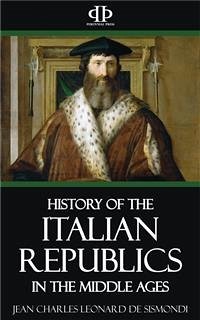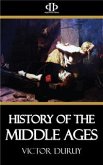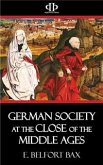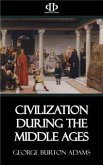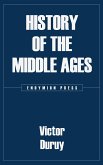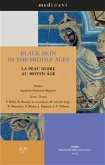In the Middle Ages Italy was occupied by a vast number of political communities, some large, others very small, some self-governing, some under despotic rule. These small states were forever contending with each other, often to the death, for independence, or increase of territory, or control of trade-routes, or preponderance. They frequently grouped themselves in unstable alliance to meet some common peril or gratify some common greed. And the domestic politics of Italy were further subject to perturbation, owing to the presence of an authoritative and aspiring Papacy within her gates, and the temptations that the fair land offered to the rapacity of the foreigner without. Several of the self-governing communities of Italy achieved imperishable lustre and distinction. The eldest children of liberty, they became the mighty mothers of the art, the literature, the commerce, and the civilization of the modern world. To each of the more illustrious of these republics detailed attention will be given in due course. But their relations with surrounding communities were subject to protean transformations and interpenetrating complexities that cannot be adequately comprehended without first surveying the continuous development of the Peninsula as a whole—the higher unfolding of a process which contained and conditioned the life of each individual state. That process begins with the period when the progressive decay of the Roman world led to its disintegration, when Italy experienced successive shocks of invasion by races of barbarians or semi-civilized peoples, some of whom settled on the disorganized land and ruled it; it embraces the struggle of Pope, Lombard, and the Greek representatives of the Roman Empire for supremacy; it includes the occupation of the fairest portion of the country by colonist-soldiers from Mohammedan shores, and its subjugation by Norman adventurers from the fields of Cotentin; it proceeds to the great struggle between the resuscitated empire in the grasp of German Caesars, and the illimitable ambition of the spiritual sovereigns of Europe; it .concerns itself with the degeneracy of the Pontiff into an Italian princelet, with the coalescence of the independent communes into larger states, with the foreign interference which their quarrels caused them to evoke, and with the subjugation of the petty despotisms and enfeebled republics of the Peninsula alike, by the unsuspected power of the great monarchies beyond the Alps; it ends with the diversion and expansion of the main stream of European thought and life from Italy to the North, carrying with it the precious and immortal results of the vigour and vitality of Italian character and intellect...

